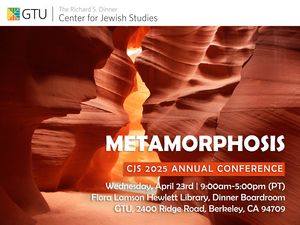Please join us for a day of exploration on the theme of metamorphosis in Jewish thought and history. The scale of catastrophe and rupture in our current time prompts us to consider the process of transformation itself. Change is necessary, inevitable, and elemental. It is creation, evolution, miracle, and collapse. Metamorphosis makes us strange to others and unrecognizable to ourselves. It prompts resistance, ecstasy, and perplexity. This conference will host a variety of papers that consider the dynamics of metamorphosis in Jewish history, culture, and thought. Papers will examine the process of change itself, as well as conceptualizations of change as expressed in thought and literature.
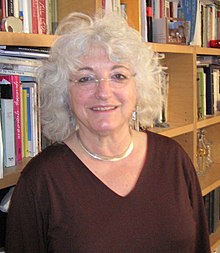
Keynote address: "Poetics, Folklore, and Hermeneutics: Dialogic Approaches to Ancient Rabbinic Literature" by Prof. Galit Hasan-Rokem
Keynote address co-sponsored by the UC Taube Center for Jewish Studies at Stanford University and Berkeley Center for Jewish Studies
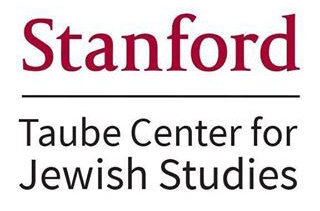
Schedule:
9:00: Arrival, Coffee, Welcome from GTU President Uriah Kim and CJS Director Deena Aranoff
9:15 - 10:15: Keynote Address
Galit Hasan Rokem (Hebrew University), “Poetics, Folklore, and Hermeneutics: Dialogic Approaches to Ancient Rabbinic Literature” with introduction fom Daniel Boyarin (UCB)
10:30 - 12:00: First Panel
Jeremiah Coogan (GTU), “Can a Book Convert? On Reading and Transformation in Late Antiquity”
Charlotte Fonrobert (Stanford), “Dialectics of Diaspora”
Jenna Kemp (UCB), “’He is the One Who Fights for You’: Joshua and the Metamorphosis of Memory”
Erich Gruen (UCB, Chair)
12:00 - 1:00: Lunch (provided)
1:00 - 2:30: Second Panel
Steve Zipperstein (Stanford) Reading from forthcoming book, Philip Roth: Stung by Life
Viola Alianov-Rautenberg (German Historical Institute), “Melodic Metamorphosis. German Jews, Contrafacta, and the Creation of a Musical Grassroots Culture in Migration”
Sam Shonkoff (GTU), “The Streets of Nehardea: Rerouting Theological Quests amid Modern Estrangement from Earthliness”
John Efron (UCB, Chair)
2:30 - 2:45: Short Break
2:45 - 4:15: Third Panel
Aaron Hahn Tapper (USF), “Apologizing for the Genocide of Indigenous Peoples in Australia and the United States”
Deena Aranoff (GTU), “No Medicine: Reflections on the place of medicine and healing in biblical and rabbinic traditions”
Bruce Daniel Haynes (UC Davis), “The Iconography of Jews through the Ages”
Naomi Seidman (University of Toronto, Chair)
4:15: Concluding Conversation
4:30 - 5:30: Reception
Featuring the Following Speakers
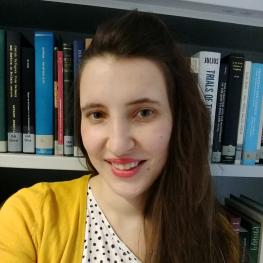 Dr. Viola Alianov-Rautenberg, PhD | Research Fellow, Pacific Office of the German Historical Institute Washington
Dr. Viola Alianov-Rautenberg, PhD | Research Fellow, Pacific Office of the German Historical Institute Washington
Dr. Viola Alianov-Rautenberg joined the GHI Pacific Office as a Research Fellow in 2024. She is a historian of German, Jewish, and Israeli history of the 19th and 20th century. She is especially interested in questions of gender, home, and migration as well as sound and music. She received her Ph.D. in 2018 from the Berlin Institute of Technology. Her first book, No Longer Ladies and Gentlemen: Gender and the German-Jewish Migration to Mandatory Palestine, was published by Stanford University Press in October 2023. Before joining the GHI, Viola held positions at the Koebner Minerva Center for German History at the Hebrew University of Jerusalem, the Bucerius Institute for the Research of Contemporary German History and Society at the University of Haifa, and the Herbert D. Katz Center for Advanced Judaic Studies at the University of Pennsylvania. Her current research project explores songs and singing in Jewish migration.
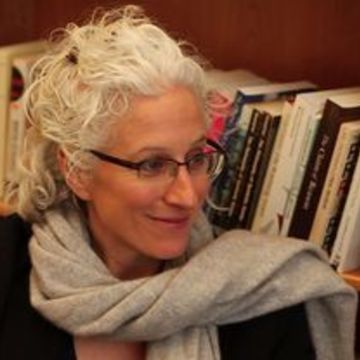 Dr. Deena Aranoff, PhD | Director of the Richard S. Dinner Center for Jewish Studies and Senior Lecturer in Medieval Jewish Studies
Dr. Deena Aranoff, PhD | Director of the Richard S. Dinner Center for Jewish Studies and Senior Lecturer in Medieval Jewish Studies
Deena Aranoff is Faculty Director of the Richard S. Dinner Center for Jewish Studies at the Graduate Theological Union in Berkeley, CA. She teaches rabbinic literature, medieval patterns of Jewish thought, and the broader question of continuity and change in Jewish history. Her recent publications engage with the subject of childcare, maternity and the making of Jewish culture.
Dr. Daniel Bo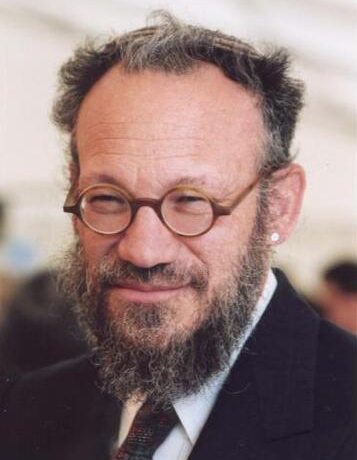 yarin, PhD | Hermann P. and Sophia Taubman Professor Emeritus of Talmudic Culture; CMES Senior Research Scholar
yarin, PhD | Hermann P. and Sophia Taubman Professor Emeritus of Talmudic Culture; CMES Senior Research Scholar
Daniel Boyarin is Hermann P. and Sophia Taubman Emeritus Professor of Talmudic Culture in the Departments of Middle Eastern Languages and Cultures and Rhetoric. He is also an Affiliated Member Department of Women's Studies, a Member of the core faculty in the minor in Gay and Lesbian Studies and of the graduate group in Ancient History and Mediterranean Archaeology, and faculty member for the designated emphasis in Women, Sexuality, Gender Studies, as well as the core faculty of the Center for the Study of Sexual Culture. Professor Boyarin began his education at Goddard College and received his Masters of Hebrew Literature at the Jewish Theological Seminary. His Education continued with a Masters of Semitic Languages at Columbia University where he did his thesis on The Babylonian Aramaic Verb According to Codex Hamburg. He was awarded a Doctorate Degree in 1975 from the Jewish Theological Seminary of America upon completion of his dissertation on A Critical Edition of the Babylonian Talmud, Tractate Nazir.
Dr. J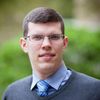 eremiah Coogan, PhD | Assistant Professor of New Testament, Jesuit School of Theology
eremiah Coogan, PhD | Assistant Professor of New Testament, Jesuit School of Theology
Jeremiah Coogan is a historian of the New Testament and early Christianity. His current research focuses on Gospel reading, the social history of early Christianity, and the history of enslavement. As a teacher, he invites students into creative encounters with the New Testament, considering its many contexts—from ancient Mediterranean audiences to global reading communities today. He received his PhD from the University of Notre Dame in 2020. Dr. Coogan is a member of the Core Doctoral Faculty in the Department of Sacred Texts and Their Interpretation at the Graduate Theological Union (GTU), an affiliated faculty member in the Ancient History and Mediterranean Archaeology Graduate Group at the University of California, Berkeley, and an affiliated faculty member at the Richard S. Dinner Center for Jewish Studies at GTU.
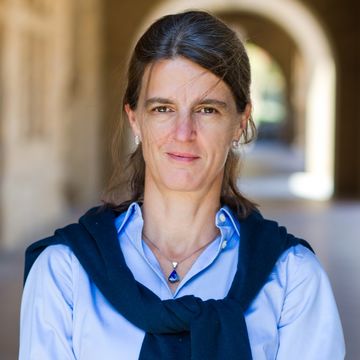 Dr. Charlotte Fonrobert, PhD | Associate Professor of Religious Studies
Dr. Charlotte Fonrobert, PhD | Associate Professor of Religious Studies
Charlotte Elisheva Fonrobert specializes in Judaism: talmudic literature and culture. Her interests include gender in Jewish culture; the relationship between Judaism and Christianity in Late Antiquity; the discourses of orthodoxy versus heresy; the connection between religion and space; and rabbinic conceptions of Judaism with respect to Greco-Roman culture. She is the author of Menstrual Purity: Rabbinic and Christian Reconstructions of Biblical Gender (2000), which won the Salo Baron Prize for a best first book in Jewish Studies of that year and was a finalist for the National Jewish Book Award in Jewish Scholarship. She also co-edited The Cambridge Companion to the Talmud and Rabbinic Literature(2007), together with Martin Jaffee (University of Washington). Currently, she is working on a manuscript entitled Replacing the Nation: Judaism, Diaspora and the Neighborhood. Charlotte is Associate Professor, by courtesy, of Classics and of German Studies.
Dr. G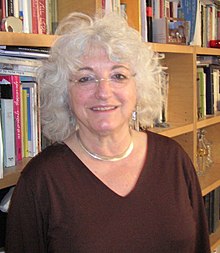 alit Hasan-Rokem, PhD | Professor Emerita at Hebrew University Jerusalem
alit Hasan-Rokem, PhD | Professor Emerita at Hebrew University Jerusalem
Dr. Galit Hasan-Rokem has taught over 40 years at the Hebrew University, at the Hebrew Literature Department's section for Aggadah and Folk Literature. Her research interests include: Poetics, folk literature, ethnography, everyday life and gender in Rabbinic literature; theory of folklore and folk literature; the proverb genre; folk culture, folklore and multi-culturality in Israel; the Wandering/Eternal Jew figure in the culture of Europe and beyond. She has published many books and numerous articles in these areas.
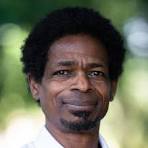 Dr. Bruce D. Haynes, PhD | Professor of Sociology, UC Davis
Dr. Bruce D. Haynes, PhD | Professor of Sociology, UC Davis
Bruce D. Haynes is Professor of Sociology at the University of California, Davis, where he holds affiliations in African American Studies, Jewish Studies, Religious Studies, Geography, and Community and Human Development. He is an expert on racialization, racial formation, racial inequality and the lives of Jews of African descent in America. His publications include Red Lines, Black Spaces: The Politics of Race and Space in a Black Middle-Class Suburb (Yale University Press, 2001); The Ghetto: Contemporory Global Issues and Controversies (co-editor Ray Hutchison, Routledge Press, 2012); Down the Up Staircase: Three Generations of a Harlem Family (co-author Syma Solovitch, Columbia University Press 2017); and The Soul of Judaism; Jews of African Descent in America (New York University Press 2018), which was the winner of the 2019 Albert J. Raboteau Book Prize for Best Book in Africana Religions.
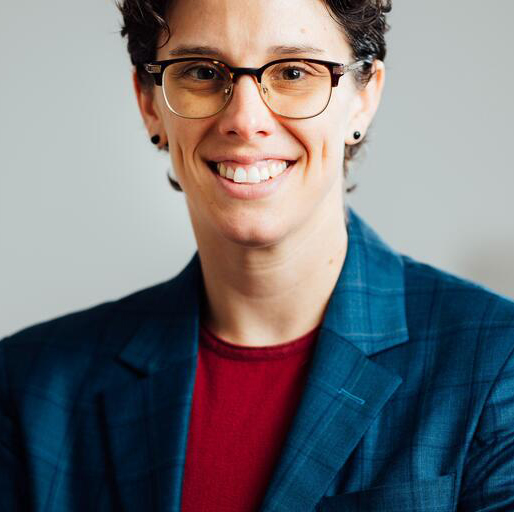 Dr. Jenna Kemp, PhD | Lecturer in Hebrew Bible, University of California, Berkeley
Dr. Jenna Kemp, PhD | Lecturer in Hebrew Bible, University of California, Berkeley
Jenna Kemp is a lecturer in Hebrew Bible in the department of Middle Eastern Languages and Cultures. She holds an MA in biblical studies from the Graduate Theological Union (2014) and a Ph.D. from UC Berkeley from the MELC department in the area of Hebrew Bible with a designated emphasis in Jewish Studies (2021). Her work blends philological approaches to the Bible with theoretical approaches to historiography, cultural memory, and literary culture. Her first book, Forgetting to Remember: Cultural Memory, Intertextuality, and Scribal Agency in the Hebrew Bible, theorizes the formation of biblical texts as a process of cultural memory.. Her research has also been published in journals such as Biblical Interpretation and Theologische Zeitschrift, and she has contributed public scholarship to forums such as SBL’s Bible Odyssey and Religion Dispatches. She also enjoys teaching in the Bay Area’s queer Jewish community. Her current book project focuses on the relationship between memory and futurity in relation to the mass annihilation (ḥērem) traditions in the book of Joshua. Namely, she is investigating how perceptions of incompletion and failure work to propel memories forward in time and to consider why these memories can shift in import from activation of the past toward management of the future. Some of the preliminary research has already been published in the article, “From Annihilation to Dispossession: Transforming Memories of חרם in the Book of Joshua.”
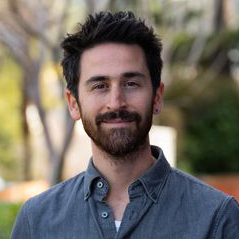 Dr. Sam Shonkoff, PhD | Taube Family Assistant Professor of Jewish Studies
Dr. Sam Shonkoff, PhD | Taube Family Assistant Professor of Jewish Studies
Sam Shonkoff (Ph.D., University of Chicago) is the Taube Family Assistant Professor of Jewish Studies at the GTU, where he teaches on Jewish religious thought as well as methods in the study of religion. His scholarship focuses primarily on German-Jewish and Hasidic theologies, as well as integrations of Hasidic spirituality in relatively secular spheres. Shonkoff is co-editor with Ariel Evan Mayse of Hasidism: Writings on Devotion, Community and Life in the Modern World (Brandeis University Press, 2020) and the editor of Martin Buber: His Intellectual and Scholarly Legacy (Brill, 2018). His current book project investigates themes of embodiment in Buber’s representations of Hasidism vis-à-vis the original sources. To view Shonkoff's publications and an extended CV, please visit https://gtu.academia.edu/SamShonkoff.
 Dr. Aaron Hahn Tapper, PhD | Mae and Benjamin Swig Professor in Jewish Studies
Dr. Aaron Hahn Tapper, PhD | Mae and Benjamin Swig Professor in Jewish Studies
Aaron J. Hahn Tapper is the Director of the Swig Program in Jewish Studies and Social Justice, and has been at USF since 2007. An educator for more than two decades, his primary academic interest is the intersection between identity formation, social justice, and marginalized groups.
Aaron completed his PhD in the Religious Studies Department at the University of California, Santa Barbara, where he studied the History of Religions, the Sociology of Religions, Nonviolence and Religions, Politics and Religions, and Modern Islamic Movements. His Dissertation focused on the relationship between power, the sociopolitical context of Israel and Palestine, and Jewish and Islamic religious law (halachah and shari'a, respectively). He also received an MTS from Harvard Divinity School, where he focused on World Religions, and a BA from Johns Hopkins University, where he majored in Psychology.
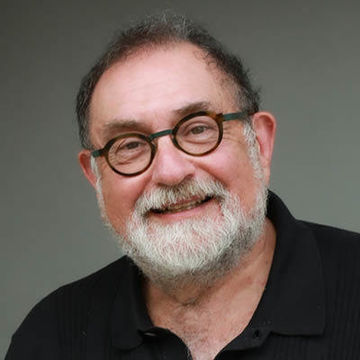 Dr. Steven J. Zipperstein, PhD | The Daniel E. Koshland Professor in Jewish Culture and History, Standford University
Dr. Steven J. Zipperstein, PhD | The Daniel E. Koshland Professor in Jewish Culture and History, Standford University
Steven J. Zipperstein is Daniel E. Koshland Professor in Jewish Culture and History at Stanford University. He is the author and editor of nine books, most recently Pogrom: Kishinev and the Tilt of History (Liveright/WWW Norton, 2018). His next book -- “Stung by Life. Philip Roth. A Biography” -- will appear in October 2025 in the Jewish Lives series at Yale University Press.
He previously served as Director of the Taube Center for Jewish Studies at Stanford for sixteen years and has held prestigious fellowships and visiting positions at Harvard, Oxford, UCLA, and institutions across France, Russia, and Poland. His scholarship, which has won numerous awards, spans Jewish cultural history, Zionism, and Russian Jewry, with works translated into multiple languages. He has played a significant role in shaping the field as an editor, academic board member, and mentor, with his PhD students teaching at leading universities worldwide. Zipperstein has also been deeply involved in Jewish research institutions, serving in leadership and advisory roles at YIVO, the Center for Jewish History, and the American Academy for Jewish Research, among others.

